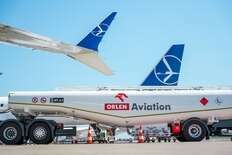
Introduction of SAF
Aircraft at Warsaw, Kraków, and Katowice airports can now refuel with Sustainable Aviation Fuel (SAF), which ORLEN has added to its offerings. SAF significantly reduces greenhouse gas emissions during production and combustion.
Production and Compatibility
SAF is made from renewable or waste-derived feedstocks, such as used cooking oils and various types of waste, meeting sustainability criteria. It is blended with regular jet fuel and is fully compatible with existing jet engine technologies, allowing immediate adoption by airlines.
Regulatory Compliance
The EU ReFuelEU Aviation Regulation requires sustainable aviation fuels to account for at least 2% of total jet fuel sales by 2025, with targets increasing to 6% by 2030, 20% by 2035, and 70% by 2050. ORLEN's introduction of SAF aligns with these mandates, and the company is developing a hydrogenated vegetable oil (HVO) facility at its Płock refinery to produce SAF from used cooking oils.
Future Developments
Until the HVO facility is operational, ORLEN sources SAF components from abroad. Additionally, as part of the HySPARK project, ORLEN plans to build a hydrogen refuelling station at Warsaw Chopin Airport to supply zero-emission ground support vehicles, further supporting aviation decarbonisation efforts.

